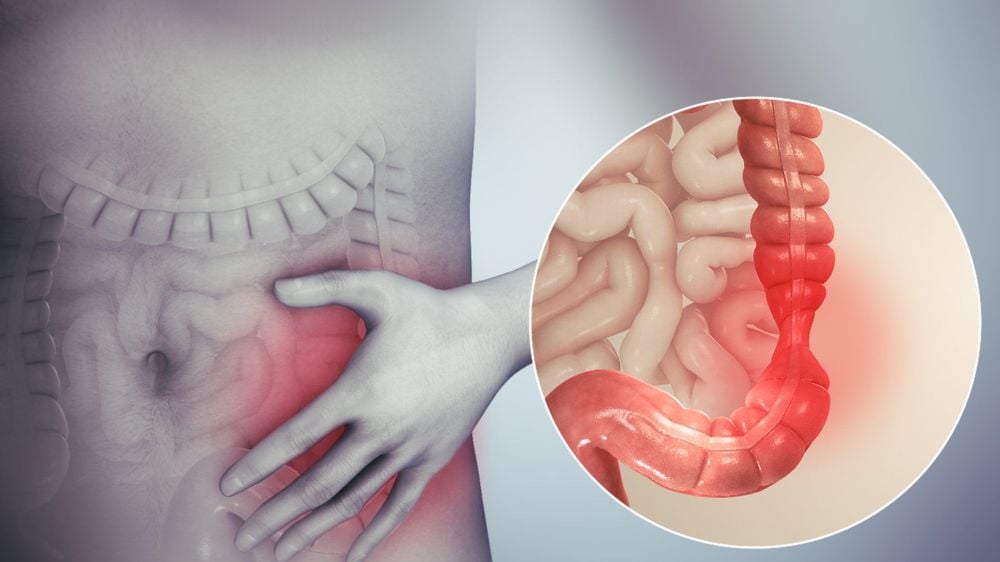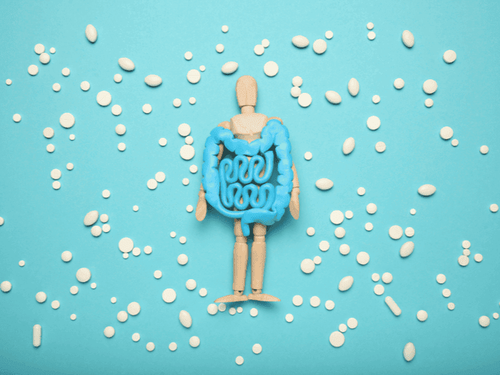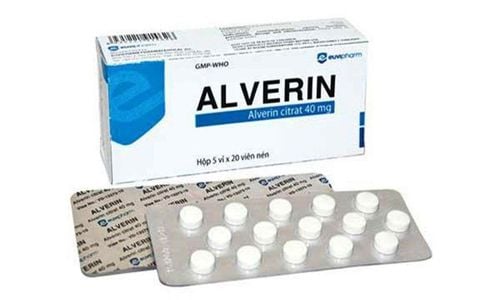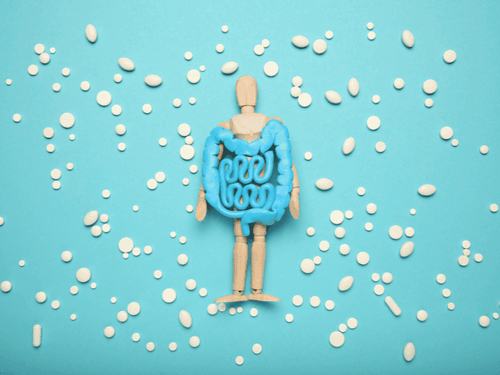This is an automatically translated article.
Post by Master, Doctor Mai Vien Phuong - Gastrointestinal Endoscopy - Department of Medical Examination & Internal Medicine - Vinmec Central Park International General Hospital.If you have irritable bowel syndrome (IBS), you may feel like avoiding social situations. For example, going out to dinner or eating in unfamiliar places can be a challenge for you. However, you can manage these situations by eating only at familiar restaurants where you know where the restrooms are.
1. Irritable bowel syndrome should abstain from food?
With irritable bowel syndrome, you'll notice that certain foods and behaviors trigger or worsen your symptoms. 75% of people with irritable bowel syndrome report that stress causes them significant abdominal pain and triggers their symptoms. Anxiety and depression are also considered to be major triggers of symptoms.
In addition to these factors, certain foods can cause or worsen irritable bowel syndrome symptoms. Some people with irritable bowel syndrome may be concerned about eating these foods in public, as they can cause stomach upset or worsen symptoms. Foods that aggravate irritable bowel symptoms include:
Wine Beans Broccoli Cabbage Carbonated Beverages Cauliflower Chocolate Fatty Foods Milk Raw Fruit Spicy Foods To Learn Which foods are causing your symptoms, try keeping a food diary. Write down all the foods and drinks you have for a day and any symptoms that occur.
2. Tips for dealing with social situations with irritable bowel syndrome Some of the following methods can help people with IBS prepare to be away from home without problems:
Bring things in your pocket Be prepared for accidents by having items like baby wipes, perfume spray, and underwear ready. Knowing you use these can help reduce anxiety and prepare you for any eventuality.
Eat enough fiber and water Eat enough fiber daily, especially if you have frequent constipation or bowel symptoms that alternate with irritable bowel syndrome. About 20 - 35 grams of fiber is an average number, although this number can vary depending on your health. To avoid bloating, only 2-3 grams of fiber per day should be added. Make sure you drink enough fluids, about 8-10 cups of water or other caffeine-free beverage, each day.
Consider Daily Probiotics Probiotics are found naturally in some yogurts and can also be purchased in pill form at most pharmacies. They are considered healthy bacteria that help ease symptoms associated with irritable bowel syndrome.
Short trips Take quick trips, such as spending 15 minutes at the mall or taking a short walk outside. This practice can be extremely helpful in preparing you for further outings.

3. Methods to Avoid Triggers of Irritable Bowel Syndrome Stress, lack of sleep, and foods that irritate the gut are all potential triggers that can make IBS symptoms worse. Try the following methods to reduce triggers:
Manage your stress: Stress can be a major contributing factor to triggering irritable bowel syndrome. Practicing methods like meditation, yoga, and journaling can help you reduce stress in your life. Get enough sleep: Try to go to bed on time and avoid sleeping too much during the day. Avoid electronic devices in your bedroom, keep the temperature cool. Avoid irritating foods: Dairy products, alcohol, and caffeine are foods that people with IBS should avoid. Don't order from the menu: When eating out, order simple dishes that are less likely to cause symptoms. Examples include steamed vegetables and pan-fried chicken breasts. Don't avoid eating: Although some people with IBS avoid eating before going out, this plan sometimes backfires. As you wait to eat out, your normal diet can become overwhelming and your symptoms get worse. If you've taken the recommended methods above, but your symptoms persist and get worse, see your doctor to determine the triggers, treat any Any underlying conditions, such as anxiety and depression, may be contributing to your symptoms.
Please dial HOTLINE for more information or register for an appointment HERE. Download MyVinmec app to make appointments faster and to manage your bookings easily.
References:Burstall, D., Vallis, T., & Turnbull, G. K. (2006, July 28). Irritable bowel syndrome relief: a complete approach to managing irritable bowel syndrome. Hoboken, NJ: John Wiley & Sons. Cognitive behavior therapy (CBT) for irritable bowel syndrome. (n.d.) ucl.ac.uk/clinical-psychology/competency-maps/physical-health-conditions-competences/specific%20interventions/CBT%20for%20Irritable%20Bowel%20Syndrome%20web.pdf Eating, diet, and nutrition for irritable bowel syndrome. (2015, February) niddk.nih.gov/health-information/digestive-diseases/irritable-bowel-syndrome/eating-diet-nutrition Hauser, G., Pletikosic, S., & Tkalcic, M. (2014, June 14) ). Cognitive behavioral approach to understanding irritable bowel syndrome . World Journal of Gastroenterology: WJG, 20 (22), 6744-6758 ncbi.nlm.nih.gov/pmc/articles/PMC4051915/ Mayo Clinic Staff. (2014, July 31). Irritable bowel syndrome: Definition mayoclinic.org/diseases-conditions/irritable-bowel-syndrome/basics/definition/con-20024578














